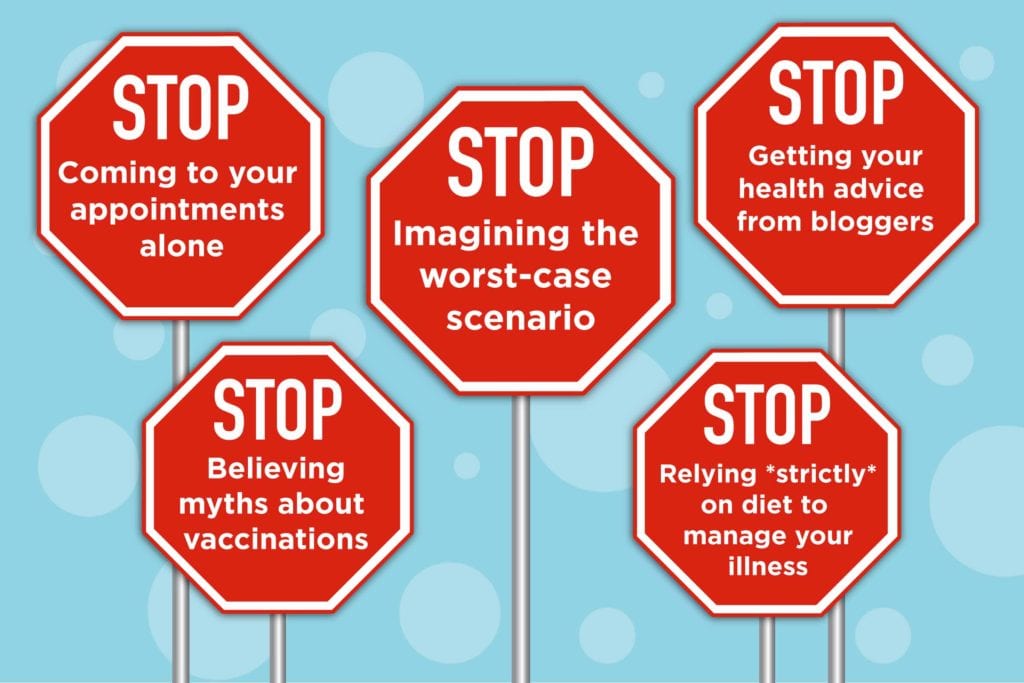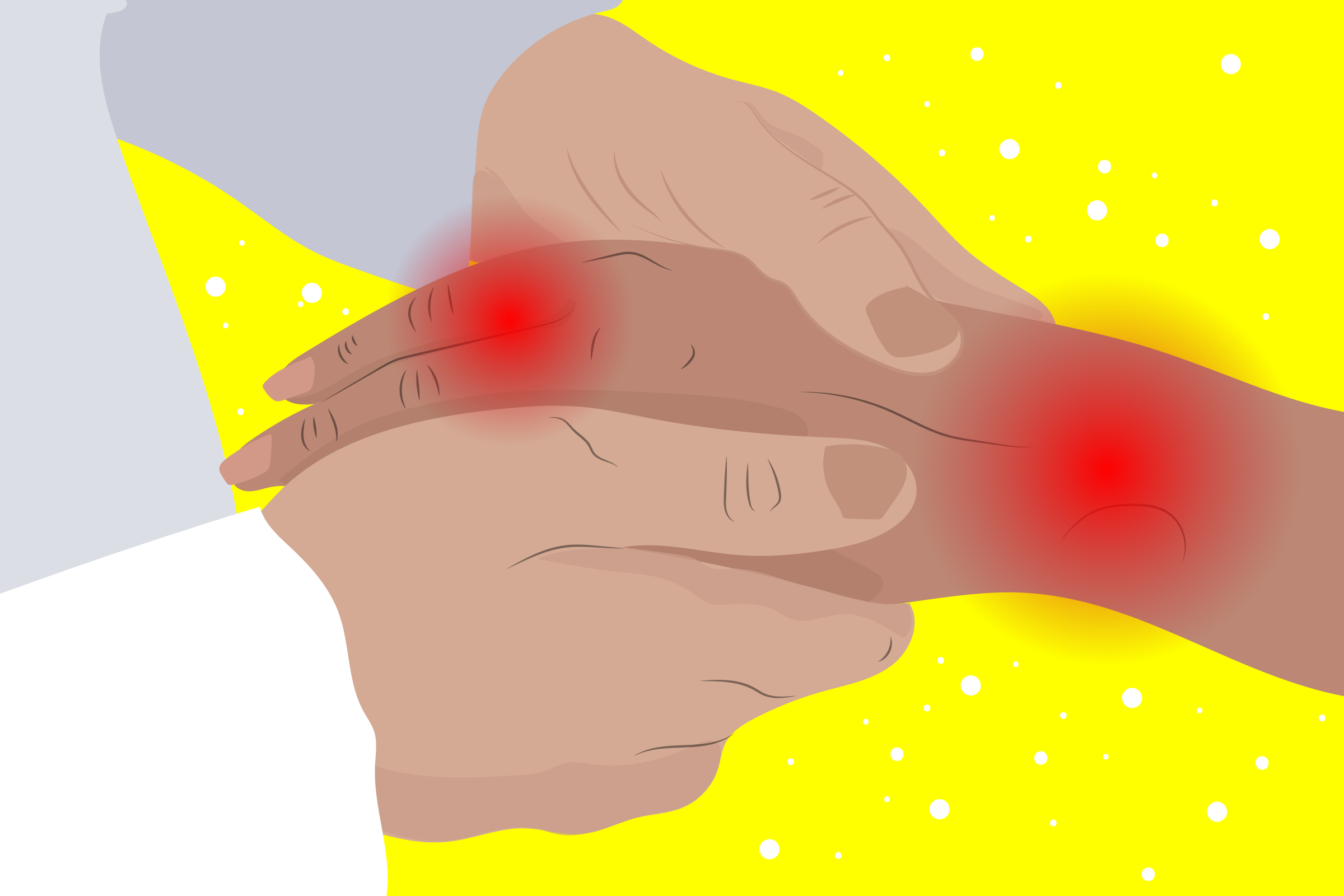what a rheumatologist does at first visit
 What a Rheumatologist Does at First Visit - The Rheuma Mill
What a Rheumatologist Does at First Visit - The Rheuma Mill12.28.18 7:56AM12.28.18 7:56AM17 Things Your rheumatologist wants you to stop doing already Stop these habits and you will be much healthier and happier. Batman had his butler Alfred. Luke Skywalker had Yoda. Ariel had Flounder. And when it comes to hitting the older villain in your life right now — your inflammatory arthritis — you also have a powerful, super smart partner: your rheumatologist. Working as a couple with your doctor can go a lot to help get the right diagnosis, establish the right treatment plan, find the most effective medicines, and keep a happy and productive life. Having said this, finding the right rheumatologist for you and your illness can take time. You may not gel with the first or second doctor who treats you. Establishing this type of trust relationship requires effort on both sides. Once you've found a rheumatologist that you like and respect, it's important to know what you can do to help them and ultimately yourself. We interviewed rheumatologists to find out exactly what habits their patients want to stop doing. Take a look at this list and see if there are small changes you can make to improve your health.1. Stop: Smoking This can be one of the most obvious, so let's get it out of the entrance. In case fatal cancer and heart disease are not sufficient motivations to stop smoking cigarettes, you can now add your autoimmune disease — such as rheumatoid and psoriatic arthritis — to the list of things that smoking gets worse. "Takecharism is associated with increased psoriasis, worse joint disease, more joint damage, greater pain and less function," says Alexis Ogdie, MD, rheumatologist and assistant professor of medicine and epidemiology at the University of Pennsylvania Perelman School of Medicine in Philadelphia. Talk to your doctor if you need help quitting smoking.2. Stop. Stress it over your illness We know this is easier to say than to do it. After all, there is hardly anything more stressful than managing a debilitating, progressive and chronic disease. But worrying about it won't help you and it can definitely hurt you, says Dr. Ogdie. "Force makes pain worse and causes you to lose sleep, which in turn leads to more pain and outbreaks, creating vicious cycles," he explains. It is not possible to completely shut down the anxious part of your brain, but there are many things you can control that will help reduce your overall stress, including mediation, care exercises and physical activity, he says.3. Stop. Imagine the worst scenario What's the first thing you did after receiving your diagnosis? If you are like most people, you probably hooked it — and then you almost fainted from reading catastrophic stories online. Don't let yourself go to that dark place. " Negative thinking will make your experience with the disease much worse," says Dr. Ogdie. "Resilience is one of the best things you can have to deal with your illness. That comes from being grateful for the things you have and focusing on the positives." If you are having a very difficult time dealing with your diagnosis, it is a great idea to seek therapy — to find a therapist who specializes in patients with chronic disease. .4. Stop: Coming to Your Appointments Only One of the distinctive symptoms of many autoimmune diseases, including rheumatoid arthritis, is cognitive difficulty, such as concentration problems and short-term memory problems. That's why it's crucial that you don't show up alone, says Orrin Troum, MD, rheumatologist at the Providence Saint John Health Center in Santa Monica and at the Keck School of Medicine at the University of Southern California. "We give patients a lot of information, especially during the first appointments, and it can be overwhelming for them," he explains. "I always recommend that you bring a friend, couple or caregiver to your date with you." Take a look at this advice for the .5. Stop: Drop the invitations to leave When people don't feel well, the last thing they want to do is go out and pretend to be happy, not to mention dating a lot of people who have no idea what you're dealing with, says Dr. Ogdie. However, isolating can only make your symptoms and your pain worse. "Try to spend time with friends and family in a way you can still interact but be more comfortable," he says. "For example, it may not be a shopping day today, but you can find yourself for coffee instead." Your friends and family are powerful medicines and even if they can't fully get how you feel, they can still be a big help.6. Stop. Returning to comfort treatments It is totally understandable that you may want to deal with stress and pain by indulging in some of your favorite sweets — are not called "comfort food" for nothing! But OD'ing in sugar can go back, says Dr. Ogdie. "It has not been tested scientifically, but many patients report that more sugar in their diet makes their symptoms worse," he explains. "Even if [sugar] does not cause outbreaks, weight gain and obesity are definitely associated with symptoms of worse disease, decreased functional capacity and lower response to therapy." This doesn't mean you can never have birthday cake again, but you should do the best to limit it as much as possible, add. Take a look at these tips at .7. Stop: Creating Myths on Vaccines "Too many people have a preconceived prejudice against vaccines and think that getting them will hurt them," says Dr. Troum. "They are not only non-damaging vaccines, they are essential for people with rheumatoid arthritis such as immunosuppressive drugs that take them make them even more susceptible to the disease." He recommends receiving flu vaccine every year, dyeing and pneumonia vaccines, and keeping the current with all recommended vaccines and boosters. Read more about it and here.8. Stop. How to get your health advice from bloggers While reading the experience of other people with autoimmune diseases can be helpful, taking health advice from someone random on the Internet — and then trying out an experimental or untested treatment based on what you've read—is a bad idea, says Dr. Troum. "I absolutely encourage patients to do all the research they can, just make sure you get your information from reliable and credible sources." Do you need anything to start? Stop: Burning Other DoctorsDealing with an autoimmune disease is a lesson of frustration, often it seems that as soon as you think you have discovered it, your body throws you for a new loop, so it is understandable that you sometimes get frustrated with your treatment team too. Unfortunately, too many patients express that by malicious doctors to their other doctors, which can make it difficult for their team to work together and lose precious appointment time, says Douglas Roberts, MD, a rheumatologist, medical assistant clinical professor at the University of California Davis Medical School, and founder of . Asking questions and reporting problems is always welcome but saving the general vent for a friend, he says. 10. High: Relying solely on medication to manage your signs Autoimmune diseases require a complete treatment plan that involves medical and lifestyle interventions. Relying solely on your medication to manage your RA does not work well, says rumatologist Anca Askanase, MD, director of rrials clinic rrials at Columbia University Medical Center in New York City. Many doctors recommend diet changes that make your diet more anti-inflammatory, including eating more fruits and vegetables, fish, nuts, legumes and other whole foods, as well as a regular exercise regimen or physical therapy aimed at your arthritis symptoms. But on the other hand...11. Stop. Feed *strictly* in the diet to manage your disease" I have patients who think that following certain anti-inflammatory diets or other diets is enough treatment," says Dr. Roberts. But rheumatoid arthritis and other autoimmune inflammatory arthritis are serious autoimmune diseases. If they could have been managed only through lifestyle interventions, he would not need a doctor, he says. That is not to say lifestyle changes do not help at all — a healthy diet, daily exercise, and proper sleep are powerful medicines — but you have to make sure that you are following all your doctor's orders, including taking all the medications as prescribed. Also...12. Taking Unapproved Supplements Take a look at any autoimmune website and you are likely to see lists of recommendations for supplements, essential oils or other naturopathic treatments. And it is not that these treatments cannot help; rather the problem is that 1) most do not have strong scientific data to support them, and 2) are not regulated in the same way that the free-selling medications or prescription drugs are, so you do not really know what you are receiving, says Dr. Troum. The key is to ask your doctor before adding something new, add. .13. Stop: Showing late to your appointments "This is more annoying than a serious problem, but I have noticed a trend with some patients to become chronically late to our appointments," says Dr. Roberts. This wastes time of valuable treatment and inconvenience to everyone after you, he points out. It is true that people with rheumatoid arthritis may have a more difficult time getting to medical appointments, but that means that you should try to plan ahead to have to find walks or need extra travel time due to mobility problems, he says. Being late is becoming human and the staff will do everything possible to work with you, but getting late every time is rude and means that you may need to make more space on your schedule to be quick. 14. Stop. Diagnosis. With all the collective information of humanity at your fingertips, it is very easy to run on the internet to get answers, especially when it doesn't feel right. This means that the new patients often appear until their first appointment, trusting that they know exactly what happens to them, says Ashira Blazer, MD, a rheumatologist and assistant professor of medicine at the NYU Langone Rheumatology Division. "For our first meeting, I would prefer to hear your story rather than what some website says. As a doctor, I am a class detective, and it is much easier to get to the bottom of your problem by learning the course of symptoms from beginning to end," he explains. "This also helps me to determine which symptoms are most distressing and what to address first."15. Stop: Lie with your treatment team? Didn't you follow therapy? Did you have a date? Do you have a super embarrassing symptom? Whatever your problem, it is important to be honest and direct with your doctor about it, says Dr. Blazer. "I've had patients who try to hide the truth about their symptoms, adherence to a treatment plan, details of a diagnosis, or how they're really doing and as I understand it, it's impossible to really help them if I, like your doctor, don't get a clear picture," he says. Basic theme: Always tell the truth. Your doctors definitely know they're dealing with humans, not robots, and they want to help you wherever you are, add.16. Stop. Skip Your MedicineTraumatologists usually see your patients every few months or more to perform maintenance checks, which means it is up to you to follow your doctor's instructions. This includes taking medications as prescribed. Unfortunately many patients think that when they start feeling better that means they can stop their medications. Bad idea, says Dr. Blazer. "Not all medicines will work well or will be tolerated by the patient, but the only way to find out for sure is to take the medication regularly for a sustained period of time," he explains. "It is also important to realize that rheumatic diseases tend to be chronic, and that medications should be taken even when the patient feels good. Lapses during good times can make it difficult to achieve the same level of effectiveness once the medication is restarted. Assuming their diagnosis is a life sentence of miseryNo one wants to have a diagnosis of a chronic disease, especially not rheumatoid arthritis, but their prognosis is probably much better than it was a generation ago, a decade ago, or even a few years ago, says Nathan Wei, MD, a rheumatologist and director of the Arthritis Treatment Center in Frederick, Maryland. However, he says he has seen too many patients give up hope and resign themselves to pain and misery. "Today, we have remarkable treatments that are effective in the treatment of arthritis, you don't have to 'just live with it'," he says. Talk to your doctor to see if you are a good candidate for new or emerging treatments. Read more Reply Your email address will not be published. Required fields are marked with *Name*Email*Internet Quick Links Our ResourcesTerms & Conditions Download our AppStay Connect Log in / Sign up Just fill if you're not human

What a Rheumatologist Does at First Visit and How to Prepare

Preparing for a Rheumatologist Visit for Ankylosing Spondylitis

3 Tips to Make The Most of Your First Rheumatology Appointment – Health Essentials from Cleveland Clinic

What a Rheumatologist Does at First Visit - The Rheuma Mill

What Is a Rheumatologist? - What They Treat and When to See One

What a Rheumatologist Does at First Visit and How to Prepare

Your First Visit to the Rheumatologist - Kaleidoscope Fighting Lupus

What is a rheumatologist? Medical conditions, procedures, and more

What a Rheumatologist Does at First Visit - The Rheuma Mill

Habits Rheumatologists Wish Patients Would Stop

What is a Rheumatologist?

Seeing a Rheumatologist for Rheumatoid Arthritis

Finding a Rheumatologist When You Have Rheumatoid Arthritis | Everyday Health

10 Questions Your Rheumatologist Wants You to Ask

Your First Ankylosing Spondylitis Rheumatologist Appointment
PREPARING FOR YOUR FIRST VISIT TO A RHEUMATOLOGIST

Rheumatology: What Should I Expect When I See a Rheumatologist? - RheumatoidArthritis.org

Tips For The First Rheumatologist Visit | Lupus.net

What a Rheumatologist Does at First Visit - The Rheuma Mill

Your First Visit to Rheumatology Specialty Center

Your First Visit to the Rheumatologist - Kaleidoscope Fighting Lupus
/GettyImages-724243829-597c83f1d088c00011c08c3b.jpg)
Rheumatologist: Expertise, Specialities, and Training

Preparing for Rheumatology Telehealth During the Coronavirus Pandemic

3 Tips to Make The Most of Your First Rheumatology Appointment – Health Essentials from Cleveland Clinic

RHEUMATOLOGIST APPOINTMENT | How to Prepare - YouTube

What a Rheumatologist Does at First Visit and How to Prepare

Guide to Laboratory Testing in Patients With Suspected Rheumatic Disease

What is a Pediatric Rheumatologist? - HealthyChildren.org

Access to rheumatologists among patients with newly diagnosed rheumatoid arthritis in a Canadian universal public healthcare system | BMJ Open

Using genetics to prioritize diagnoses for rheumatology outpatients with inflammatory arthritis | Science Translational Medicine

Rheumatology visit within 6 weeks of RA symptom onset increases chance for remission

Lupus and Your First Rheumatologist Visit | Lupus Chick

8 BIG Reasons to See a Rheumatologist: Symptoms, Disorders & Concerns – Vital Reaction

Factors impacting referral of JIA patients to a tertiary level pediatric rheumatology center in North India: a retrospective cohort study | Pediatric Rheumatology | Full Text

Using genetics to differentiate patients with similar symptoms: application to inflammatory arthritis in the rheumatology outpatient clinic | bioRxiv

Doctors visited by patients with the symptoms of rheumatic disease,... | Download Scientific Diagram

What to Expect at Your First Rheumatology Clinic Visit • Johns Hopkins Rheumatology

Rheumatology practice amidst the COVID-19 pandemic: a pragmatic view | RMD Open

What a Rheumatologist Does at First Visit and How to Prepare

The Virtual Doctor is In: Advancing Care Through Tele-Rheumatology
Posting Komentar untuk "what a rheumatologist does at first visit"